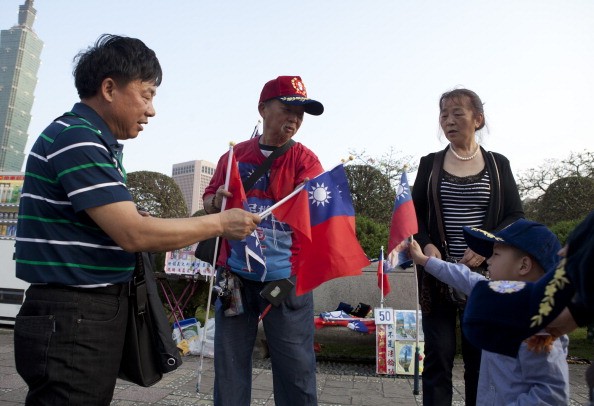Taiwan is expecting fewer tourists from mainland China during the upcoming National Day holiday, as relations between the two nations remain chilly.
Bookings for trips to Taiwan during the holiday from Oct. 1 to 7, locally known as the Golden Week, fell by 20-30 percent from last year, according to the China Youth Travel Service, one of China's biggest tour operators.
"The decline is mainly from group tourists, up to a 30 to 40 percent drop," Li Zhi, general manager of the Taiwan center of China Youth Travel Service, told the China Daily newspaper in a report published on Wednesday.
Li added that more tourists are traveling independently, but the rate of increased has slowed down compared to previous years.
Approximately 1,000 tourists booked through the service for the Golden Week holiday, including group trips, hotels and document processing, China Daily reported.
After Taiwan opened its doors to mainland Chinese travelers, the number of independent tourists rose by at least 15 to 20 percent. But this year, the increase is only around 10 to 15 percent, Li said.
He added that seats were usually sold out before September, but this year several seats remained vacant.
Ctrip, another major online travel services provider, also reported a drop of reservations to Taiwan and predicted that the island nation's tourism-dependent businesses may experience their "coldest" Golden Week this year.
"Previously, customers during Golden Week in October booked six to eight weeks in advance, but now they can book four weeks before," said Sun Yu, head of the Taiwan region for Ctrip.
Taiwan's China Times newspaper reported this month that 30,771 mainland visitors arrived in the country during the National Day holiday in 2014 and 35,891 visitors last year. However, industry analysts are predicting the number may drop below 20,000 this year, which is a steep drop of 44.3 percent compared to the previous year.
Mainland China's tourism industry officials blamed the decline to difficult cross-Straits relations and a number of negative incidents in recent months, including a fatal bus fire in July and the accidental launch of an anti-ship missile that hit a Chinese fishing vessel the same month, killing the captain and leaving three crewmembers injured.
"Group tourists who are mainly above 40 years old are affected mostly. They are more sensitive to politics. Comparatively, young travelers are less keen on politics, but the negative information in some ways also affects them," Li from the China Youth Travel Service said.
Analysts also attributed to the decline in tourists to the election of Tsai Ing-wen as Taiwan's president in May. Taiwan authorities reported a decline of about 30 percent year-on-year in the period from May through July.
Liu Xiangping, head of the Institute of Taiwan Studies at Nanjing University, said the Taiwan's current administration has contributed to the public percent that mainland Chinese tourists are ill-behaved.
"The attitude makes mainland travelers feel unwelcome and lose interest in Taiwan," he said.
Li cited an example the bus fire in July which killed 24 tourists from the mainland. President Tsai sent condolences to Cheng Kun-wen, the Taiwanese tour guide killed in the incident, but failed to do so for the mainland tourists,
Tsai treated the victims from Taiwan and the mainland differently, which hurt mainlanders' feelings," he said.
The drop in mainland visitors did not go unnoticed within Taiwan's tourism industry. In mid-September, more than 15,000 Taiwanese hospitality and tourism employees launched a protest in downtown Taipei to urge authorities to take action against the slump.
"The government has refused to acknowledge the 1992 Consensus [regarding the "One China" policy] since taking office in May. This has damaged all the hard work toward peaceful relations across the Taiwan Straits," said Ma Xiaoguang, spokesman of the State Council Taiwan Affairs Office. "Whoever started the trouble should end it."



























